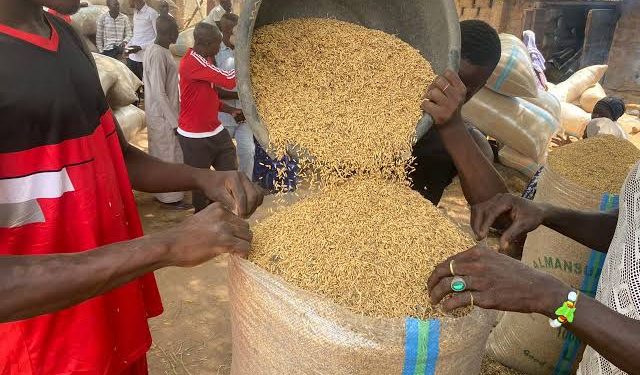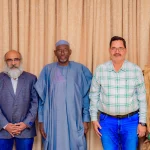The Republic of Liberia is partnering with the Jigawa State Government in Nigeria to expand rice production, a move that is expected to boost food security and unlock new opportunities for micro, small, and medium-sized enterprises (MSMEs) across West Africa.
Liberia’s Minister of Agriculture, David Akoi, announced the collaboration during a courtesy visit to Governor Umar Namadi in Dutse. Akoi, who is leading a Liberian delegation on a study tour, said the team is learning from Jigawa’s rice production success to apply similar strategies back home.
Rice is Liberia’s staple food, yet the country imports about 70 percent of what it consumes. Akoi said the government aims to reverse this trend by producing at least 70 percent locally, reducing dependency on imports. The partnership with Jigawa will give Liberian stakeholders including MSMEs in farming, processing, and distribution access to proven cultivation techniques, irrigation models, and mechanisation strategies.
Governor Namadi emphasised that Jigawa’s agricultural policies are designed not only to increase production but also to empower local enterprises. The state has expanded rice cultivation from about 70,000 hectares in 2023 to over 200,000 hectares in 2024, with a target of 300,000 hectares by 2030. Infrastructure investments including 10 revitalised irrigation dams, 300 tractors, 60 combine harvesters, and a tractor-hiring scheme have created opportunities for input suppliers, equipment leasing businesses, and rice processors.
Both governments see this as more than a bilateral agricultural exchange. The collaboration could enable agribusiness MSMEs in both Liberia and Nigeria to scale up, access larger markets, and integrate into a regional rice value chain, helping West Africa move toward food self-sufficiency.
By combining Jigawa’s production capacity with Liberia’s market demand, the partnership stands to generate jobs, stimulate trade, and strengthen resilience against food shortages in the subregion.










